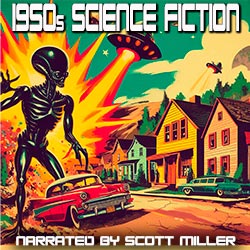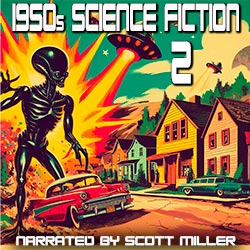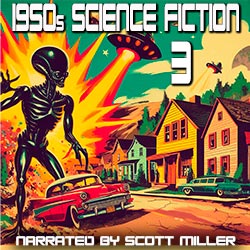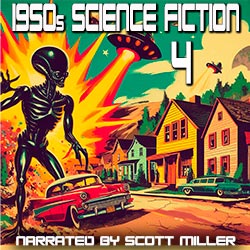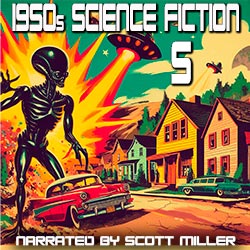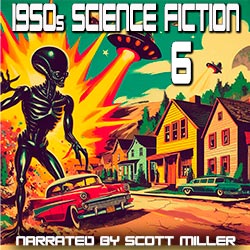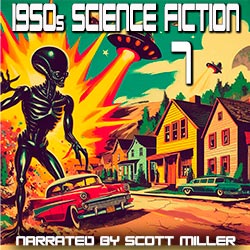The Greatest Collection of 1950s Science Fiction at the Lowest Price Ever!
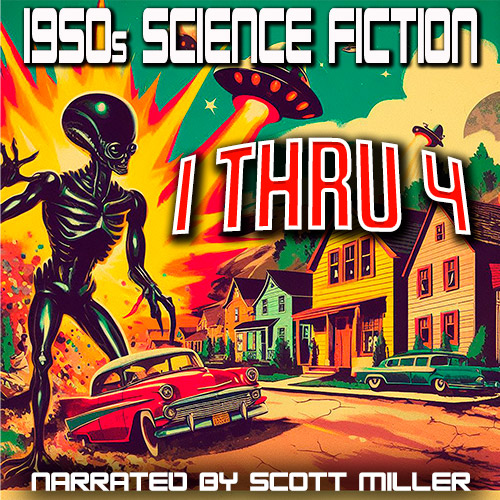
1950s Science Fiction Audiobooks For Less Every Day!
Exploring the Golden Age of 1950s Science Fiction: Pioneering Authors and Unforgettable Short Stories
The 1950s was a pivotal decade for science fiction, often referred to as the “Golden Age” of the genre. This period witnessed an explosion of creativity, imagination, and innovation as writers explored new frontiers in the realms of space, technology, and the human condition. Let’s delve into the minds of some of the most influential authors and the unforgettable short stories that shaped the landscape of 1950s science fiction.
Pioneering Sci-Fi Authors of the 1950s
Isaac Asimov: A prolific and influential figure in science fiction, Asimov made significant contributions during the 1950s. Known for his Foundation series, Asimov’s stories often revolved around the intersection of humanity and advanced technology. His exploration of robotics and the laws governing them in works like “I, Robot” set the stage for a new era of speculative fiction.
Asimov was born in Russia on January 2, 1920, his family immigrated to the United States in 1923, and he became a naturalized US citizen in 1928.
He discovered science fiction through the magazines sold in his father’s candy store.
During World War II, he was employed as a chemist at the Philadelphia Navy Yard. That’s when that he became acquainted with Robert Heinlein and L. Sprague de Camp, two other future science fiction writers.
Asimov briefly served in the Army in 1946, and following his discharge, he received his Ph.D. and began teaching biochemistry at Boston University’s School of Medicine. Asimov soon started writing short stories and then his first novel, Pebble in the Sky, in the 1940s and ’50s. For the next 40 years, Asimov wrote hundreds of science fiction works.
The 2021 Apple TV series Foundation is based on his writing, as is the 2004 movie I, Robot starring Will Smith and the 1999 Robin Williams movie Bicentennial Man.
Asimov was given the Science Fiction Writers Association Grand Master Award in 1987 and was inducted into the Science Fiction Hall of Fame in 1997.
Arthur C. Clarke: Arthur C. Clarke, a visionary writer, and futurist, brought a sense of scientific rigor to his storytelling. His iconic work “Childhood’s End” (1953) delved into the evolution of humanity, while “The Nine Billion Names of God” (1953) contemplated the consequences of technological progress. Clarke’s ability to blend science with fiction left an indelible mark on the genre.
Most people know Arthur C. Clarke from the 1968 film 2001: A Space Odyssey, widely regarded as one of the most influential films of all time.
Clarke was born in England in December 1917. He said his interest in science fiction began with the November 1928 issue of Amazing Stories magazine at the age of 11, which he read in 1929 after it had been shipped from the United States. Sir Arthur Charles Clarke remembered buying this life changing magazine at Woolworth’s and said, “How I used to haunt that once-famous store during my lunch hour, in search of issues of Amazing, Wonder, and Astounding, buried like jewels in the junk-pile of detective and western pulps!”
Clarke did have some stories published between 1937 and 1945, those stories were published in fanzines. His first professional sale was published in Astounding Science Fiction in April 1946. He was still a member of the Royal Air Force at the time he sold his first two stories to Astounding in 1945. Rescue Party sold first, followed by Loophole which was the first story actually published. Over the next few years his stories appeared regularly in leading pulps, and he always acknowledged them as his ‘launch pad’ to become a writer.
He wrote around 100 short science fiction stories during his career and dozens of novels.
Vintage Science Fiction Audiobooks For Less Every Day!
Frequently Asked Questions & Answers
How Do I Know Your Audiobooks Are Good?
Take a look at the screenshot below. This is from one of the many retailers that sells our audiobooks. You’ll see that we have 802 ratings with an average rating of 4.6. If you’d like to see this page on their website click here.
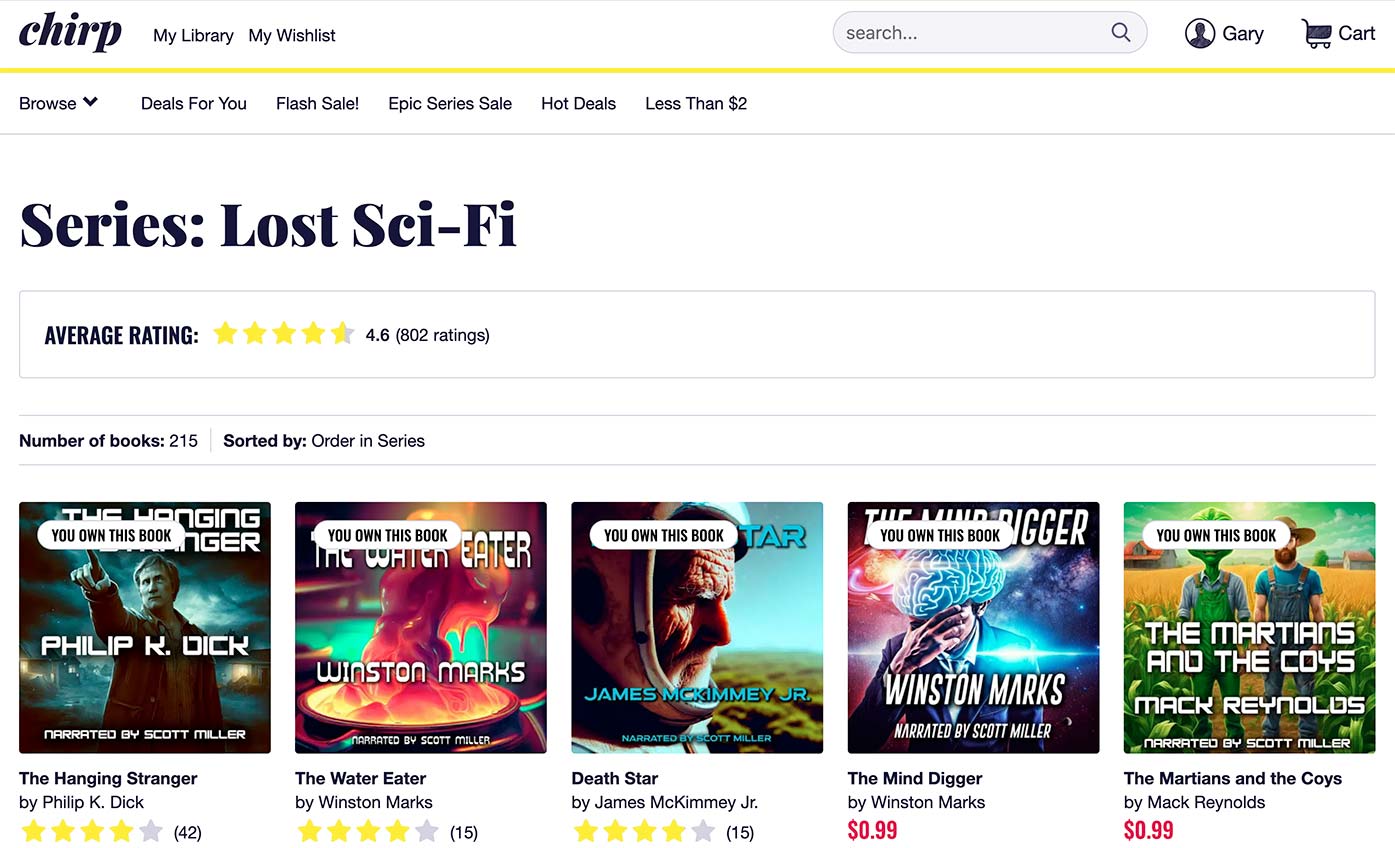
Why are the prices so low?
How do I listen to my audiobooks?
We narrate other genres for publishers and have no control over the prices of those audiobooks, but we can control these prices. Since we want as many people as possible to enjoy these vintage science fiction audiobooks from the 1930s, 40s, 50s and 60s, we’re happy offering lower prices.
We think audiobooks are overpriced and when you buy from other retailers they take a huge chunk of the money. After credit card fees we keep most of the money when you buy direct from us through LostSciFi.com. So, thank you!
When you make a purchase, you will be instructed to either download the Soundwise mobile app or listen through the web interface. The soundwise app is available in the Apple App Store and Google Play Store worldwide.
When you log in on the mobile app, the audiobooks you purchased will automatically load. You can stream the audiobooks or download them within the app for off-line listening on the go. Simple, right? You can also listen to your audiobooks on your favorite web browser right on your computer.

